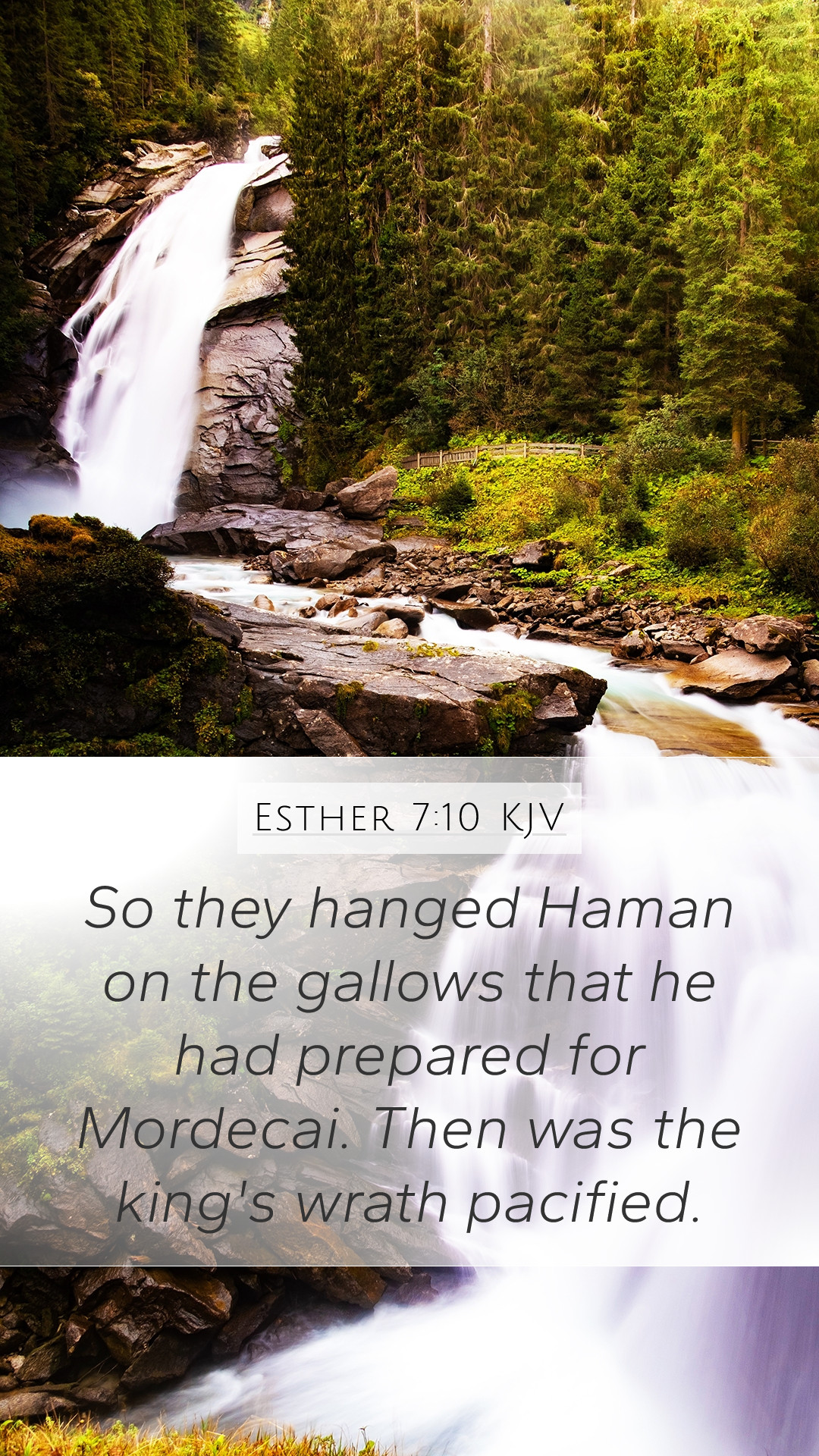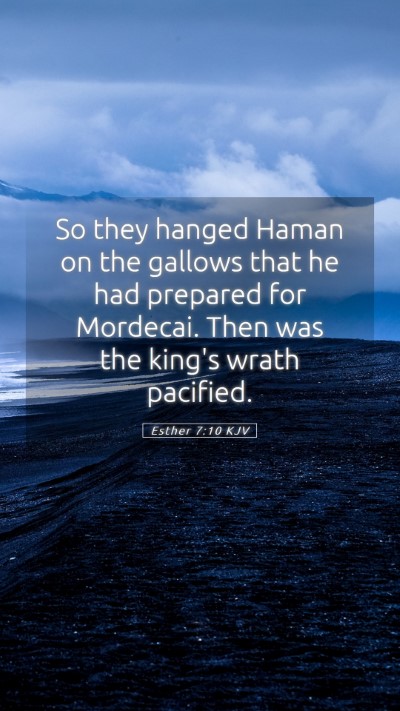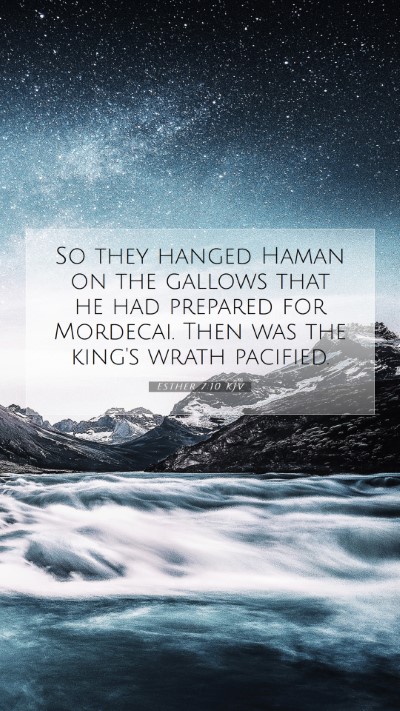Old Testament
Genesis Exodus Leviticus Numbers Deuteronomy Joshua Judges Ruth 1 Samuel 2 Samuel 1 Kings 2 Kings 1 Chronicles 2 Chronicles Ezra Nehemiah Esther Job Psalms Proverbs Ecclesiastes Song of Solomon Isaiah Jeremiah Lamentations Ezekiel Daniel Hosea Joel Amos Obadiah Jonah Micah Nahum Habakkuk Zephaniah Haggai Zechariah MalachiEsther 7:10 Meaning
What is the meaning of Esther 7:10?
So they hanged Haman on the gallows that he had prepared for Mordecai. Then was the king's wrath pacified.
Esther 7:10 Bible Verse Meaning
Understanding Esther 7:10
Esther 7:10 states, "So they hanged Haman on the gallows that he had prepared for Mordecai. Then was the king’s wrath pacified." This verse stands as a powerful testament to the themes of justice and divine retribution, central to the narrative of the Book of Esther.
Summary and Insights
This verse illustrates the culmination of events where Haman, the antagonist of the story, meets his end through the very means he had devised to destroy Mordecai, a faithful servant of God. The verse not only signifies the downfall of wickedness but also indicates divine justice at play.
Commentary Insights
- Matthew Henry's Commentary: Henry reflects on the moral implications of the narrative, emphasizing that evil plans often backfire on their architects. He highlights that God’s providence is evident, where the intentions of the wicked lead to their own destruction.
- Albert Barnes' Notes: Barnes discusses the importance of Haman's execution as a means of justice, which underscores the overall theme of the book where God delivers His people from their oppressors. Barnes notes that the manner of Haman’s death serves as a powerful reminder of the consequences of pride and deceit.
- Adam Clarke's Commentary: Clarke provides an analysis of the socio-political context, stressing that Haman's fate serves as a warning against conspiring against the innocent. He notes the significance of the gallows, indicating that the very tools of injustice can become instruments of justice.
Thematic Elements
The execution of Haman is loaded with themes of:
- Justice: The depiction of Haman's punishment reaffirms the biblical principle that God will not allow evil to go unpunished.
- Reversal of Fortune: This event symbolizes the reversal of Haman's ambitious schemes, portraying the volatility of power and status.
- Divine Providence: The narrative emphasizes that God is actively working behind the scenes, ensuring the protection and deliverance of His people.
Application of Esther 7:10
In modern application, this verse encourages readers to trust in God’s timing for justice and the ultimate vindication of the righteous. It serves as a reminder that evil intentions will ultimately be thwarted, calling believers to remain steadfast in faith.
Related Bible Verses
This verse connects with several other scriptures that explore similar themes:
- Proverbs 26:27 - "Whoso diggeth a pit shall fall therein: and he that rolleth a stone, it will return upon him."
- Galatians 6:7 - "Be not deceived; God is not mocked: for whatsoever a man soweth, that shall he also reap."
- Psalm 7:15-16 - "He made a pit, and digged it, and is fallen into the ditch which he made."
Conclusion
Esther 7:10 serves as a profound reminder of God's justice and the inevitable consequences of wickedness. For those exploring the meanings of Bible verses, this passage provides rich Bible verse interpretations and can be the basis for engaging Bible study topics in Bible study groups. As believers seek to understand and apply Scripture, this narrative encourages a deeper reflection on God's overarching plan and the assurance that righteousness will prevail.


